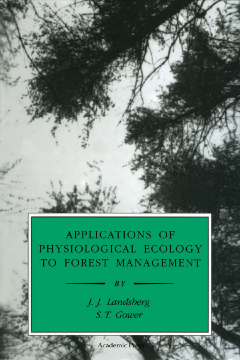
BOOK
Applications of Physiological Ecology to Forest Management
J. J. Landsberg | S. T. Gower | Jacques Roy
(1997)
Additional Information
Book Details
Abstract
Forest management is a complex process that now incorporates information obtained from many sources. It is increasingly obvious that the physiological status of the trees in a forest has a dramatic impact on the likely success of any particular management strategy. Indeed, models described in this book that deal with forest productivity and sustainability require physiological information. This information can only be obtained from an understanding of the basic biological mechanisms and processes that contribute to individual tree growth.
This valuable book illustrates that physiological ecology is a fundamental element of proficient forest management.
- Provides essential information relevant to the continuing debate over sustainable forest management
- Outlines how modern tools for physiological ecology can be used in planning and managing forest ecosystems
- Reviews the most commonly used forest models and assesses their value and future
"Likely to appeal to all those who wish to have some insight into the true place of trees within a more global context. Deserves a place on the shelves of all biological departments' libraries (and then on the desks of undergraduates writing almost any essay on trees, forestry, ecophysiology....)." --Plant Growth Regulation
"The authors provide a wide range of topics describing the basic physiological status of the trees which has an impact not only on any proficient forest management but also on forests as areas of recreation, preservation of biodiversity or water production. The book represents an excellent source of information for the rising number of scientists who want to start basic physiological studies in forests." --Journal of Plant Physiology
